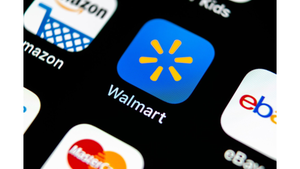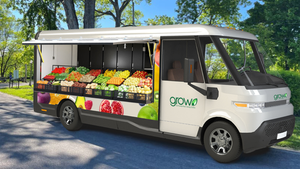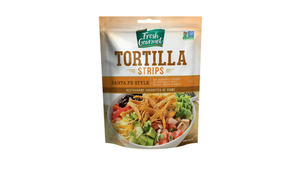KING SOOPERS TAPS AUTOMATED ROUTING
DENVER -- King Soopers here lifted on-time store delivery service levels to 97%, reduced fleet mileage by 15% and cut transportation costs substantially after automating its routing and scheduling process in one of six warehouses.The 68-store chain projects $1.2 million in annual savings -- due primarily to reduced driver overtime -- once all its warehouses go on line with the new system by mid-1996.
August 21, 1995
DENISE ZIMMERMAN
DENVER -- King Soopers here lifted on-time store delivery service levels to 97%, reduced fleet mileage by 15% and cut transportation costs substantially after automating its routing and scheduling process in one of six warehouses.
The 68-store chain projects $1.2 million in annual savings -- due primarily to reduced driver overtime -- once all its warehouses go on line with the new system by mid-1996. A second warehouse for produce will begin using the system early next month.
Currently, the retailer's frozen food warehouse is using the automated system, which develops daily routing schedules based on data drawn from computers mounted in the cab of each truck.
The new system replaces a manual process described as "static, inflexible and inefficient" by John Seetch, router dispatcher. Prior to installing the system three months ago, delivery routes were determined based on requests made by individual stores.
"What that meant, on our end, was a lot of inflexibility, a very limited ability to meet the schedule we wrote and very little objective feedback about department performance in terms of actual delivery times and hours used," he said.
Today, onboard computers from Xata, Burnsville, Minn., collect a vast array of delivery data that is fed into a routing and scheduling software program marketed by Manugistics, Rockville, Md.
"The volume of information we're collecting would be impossible to manage in a manual system," Seetch said. "We're talking about tracking 128,000 separate deliveries made every year."
Access to key data relating to route distances, average unloading times, store ordering and receiving patterns as well the potential impact of delays due to inclement weather or rush hour traffic has enabled the chain to develop fuller loads and more efficient schedules for frozen food deliveries, he added.
"We're getting specific information about unloading rates for various product types and we're getting information about store's ordering habits. We're now better able to tailor scheduling for our stores," he said.
For example, 14 trailers were dispatched daily from the frozen food warehouse prior to introducing the new system. After installing automated routing and scheduling software, only eight to 11 of those vehicles were needed each day.
Further, mileage has been reduced by about 1,200 miles weekly, resulting in savings of more than $10,000 each month.
Seetch said access to delivery data has enabled the chain to develop performance standards and accurately measure its service levels. "Today we are running at 97% on-time deliveries [for frozen food]," he noted. "We're trying to see what we can do with that 3%."
The introduction of automated routing to King Soopers' produce warehouse is planned next month; later, the chain's four warehouses for grocery, general merchandise/health and beauty care, bakery and meat-cooler-deli will incorporate the system.
Once all facilities are using automated routing and scheduling, Seetch said the transportation department will see 10% savings, or $1.2 million annually.
King Soopers is owned by Dillon Cos., Hutchinson, Kan., which is a subsidiary of Kroger Co., Cincinnati.
About the Author
You May Also Like




